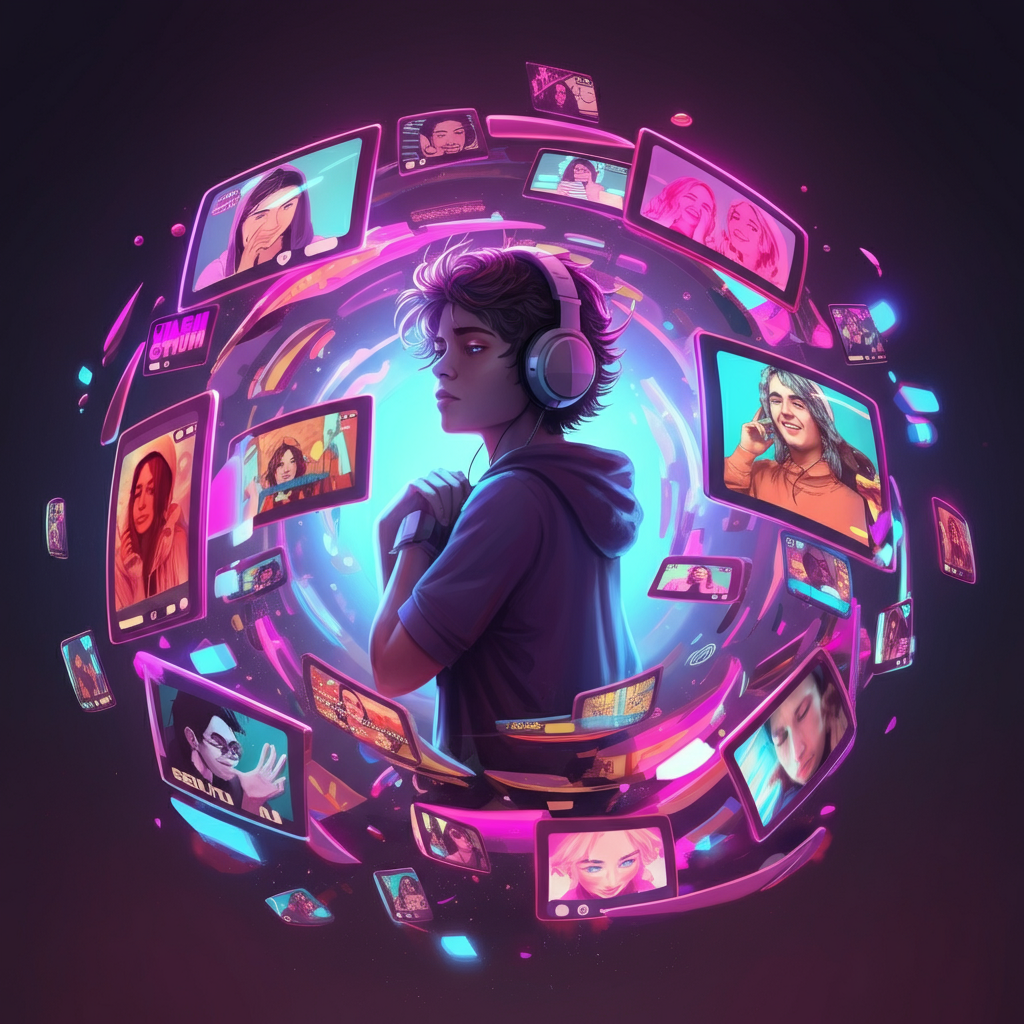‘Delulu’ Culture and the Fine Line Between Humor & Harm
Is 'Delulu' culture a gateway to creativity or a slippery slope to losing perspective? Striking a balance between playful imagination and grounded reality is key to enjoying its benefits without the pitfalls.

What is 'Delulu,' and Where Did It Come From?
Shortened from "delusional," ‘Delulu’ first surfaced as a humorous descriptor for the over-the-top scenarios fans imagine about their favorite celebrities. Whether it’s imagining a fictitious romance with a pop idol or believing their "ultimate bias" knows they exist, the term has often been used self-deprecatingly in online spaces like TikTok, Twitter, and Instagram.
The rise of ‘Stan culture’ and fan-to-fan social media communities helped the term flourish. Fans would jokingly claim to be ‘Delulu’ when entertaining a shameless crush on a celebrity or envisioning outlandish scenarios of fame and grandeur. At its core, ‘Delulu’ started as a lighthearted reminder for fans to laugh at themselves while reveling in their wild fantasies.
Why Is ‘Delulu’ Feeling So Relatable?
For many young adults immersed in online spaces, ‘Delulu’ is more than just slang. It feels like a digital permission slip to dream big (even if unrealistically) about their future, whether that’s hanging out with Harry Styles or owning a mansion without a steady job. But why does this trend resonate so deeply?
- It’s Fun and Relatable
The humor embedded in ‘Delulu’ culture disarms critics. Who hasn’t dared to imagine living a superstar lifestyle or receiving a DM from their favorite actor? It’s a common thread of harmless longing that binds communities together in laughter.
- It’s a Coping Mechanism
With the instability of modern life—whether it’s managing tight budgets or coping with professional burnout—lighthearted daydreaming offers a form of escapism. Playing into ‘Delulu’ culture provides temporary reprieve from the pressures of reality.
- Fueled by Internet Fandoms
From BTS ARMY to Beyoncé’s Beyhive, fanbases have become close-knit communities tied to their idols. Participating in ‘Delulu’ scenarios becomes a collective experience, offering fans a sense of belonging and camaraderie within digital tribes.
From Humor to Harm: When ‘Delulu’ Crosses the Line
The playfulness of ‘Delulu’ has a magnetic charm. But just like any cultural phenomenon, it harbors risks when boundaries blur. What begins as harmless fun can quietly morph into disconnection from reality. Here’s how:
- Masked Reality Avoidance
While indulging in fantasy can be a harmless creative outlet, it may evolve into a way of avoiding real-life responsibilities. For people struggling with unresolved issues, ‘playing Delulu’ may replace the difficult but necessary steps of self-reflection and accountability.
- Unrealistic Expectations
The internet rewards exaggerated narratives. From influencers flaunting curated luxury lifestyles to fans crafting intricate "meet-cute" stories about celebrities, consuming constant ‘Delulu’ content can skew your perspective of what’s achievable or normal.
- Discouraging Mental Health Help
Over time, individuals who use ‘Delulu’ as a crutch might sidestep opportunities for personal growth or professional support, such as therapy. According to DSM-5 criteria for delusional disorder, continued detachment from reality may lead to distress or complications in relationships, work, or daily functions.
Real-Life Examples of ‘Delulu’ Culture Gone Too Far
To anchor these concerns, here are instances when ‘Delulu’ attitudes overtook good judgment:
- Fan Fantasies Turned Costly
Many K-pop fans spend exorbitant amounts on merch, travel, and concert tickets, all fueled by the idea of having a special connection with their idols. While fandoms thrive on enthusiasm, some individuals report significant financial strain as a result.
- Influencer Envy Syndrome
Social media influencers promoting lavish and perfect lives often inspire fans to mimic their ‘aspirational’ content. This façade of ‘ideal lifestyles’ can pressure followers into unhealthy spending habits or self-comparisons.
- Avoidance Through Fantasy
While facing career stress or relationship issues, some people immerse themselves in fantasies about alternate realities where every problem magically resolves. Instead of addressing challenges, they risk sidelining meaningful changes in favor of unrealistic shortcuts.
How to Engage with ‘Delulu’ Culture Without Harm
For the millions who happily partake in ‘Delulu’ culture, the goal isn’t total abstinence but balance. Here’s how to enjoy the laughs and camaraderie without losing touch with reality:
1. Recognize the Line Between Fantasy and Reality
It’s fun to dream, but keep it labeled as such. Understand that celebrity connections and “easy success” narratives belong to your imagination.
2. Limit Overexposure to Perfection Culture
Follow creators who promote authenticity instead of perfection. Engage with diverse accounts that show both the highs and lows of their lives, reminding yourself that curated content is rarely the full picture.
3. Check Your Mental Health Regularly
Ask yourself if your ‘Delulu’ scenarios are overshadowing real-world responsibilities. If you notice declines in productivity, confidence, or well-being, consider seeking professional advice.
4. Find Community in Healthy Places
Rather than centering all interactions around mutual fantasies, join groups where members celebrate collective progress in real-world goals like creative writing workshops or fitness achievements.
5. Stay Self-Aware
It’s okay to laugh at your ‘Delulu’ moments, but practices like mindfulness and journaling can keep you grounded as you balance fun with self-awareness.
Why Critical Thinking Matters in an Age of Trends Like ‘Delulu’
Engaging with ‘Delulu’ culture can bring joy when done responsibly, but unchecked participation risks alienating you from reality. The magic lies in keeping daydreams playful rather than permanent, serving as artistic escapism rather than avoidance.
More importantly, platforms and communities must advocate for real-world solutions rather than exaggerated portrayals or fantasies. The next time you’re tempted to go fully ‘Delulu,’ check yourself with one simple question: “Am I chasing creativity or losing clarity?”
At the end of the day, you’re stronger for finding a balance between the two.

